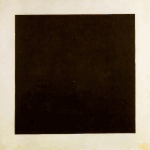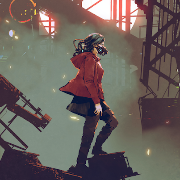|
They've just announced a Dying Earth RPG bundle of holding. Is it worth it? It looks real interesting and I'm a fan of Robin Laws' work but I'm afraid it might fall in the Feng Shui trap of presenting cool ideas in an ambitious but ultimately poor system.
|
|
|
|

|
| # ? May 20, 2024 17:37 |
|
One idea I've had is that everyone - enemy and PC - acts simultaniously (outside of maybe a talent for specific situations). It'd probably work best if it was some kinda card based game so everyone would lay their card down and flip it together to see what went down.
|
|
|
|
Yea, I do agree that using multiple dice to make a nice curve is a million times better then a single d20 or whatever.
|
|
|
|
Draw a hand of X cards. Each suit corresponds to an action type ( This assumes Warrior-types have some interesting things to do other than punch goblins.
|
|
|
|
ProfessorCirno posted:One idea I've had is that everyone - enemy and PC - acts simultaniously (outside of maybe a talent for specific situations). It'd probably work best if it was some kinda card based game so everyone would lay their card down and flip it together to see what went down. Another interesting idea was how they did it in 1E Ironclaw, where there were Initiative Ranks (1-2-3-4) in a round. You could choose to attack first (going in rank 1) or attack Hard (+1 Damage, which increased the size of every die in your damage pool up 1, which was a big deal), or Sure (+1 to hit, same thing). If you hit an enemy and did damage, there was a chance you staggered them out of their action for the round, but the bonuses for going second-rank were huge, as were the benefits for going 3rd rank to focus or make special attacks. If two people acted on the same rank they still had to work out priority, but it worked pretty well to add some extra strategy to duels.
|
|
|
|
Lichtenstein posted:Draw a hand of X cards. Each suit corresponds to an action type ( I've actually been thinking more about a modern era-ish game built around cheesy 80's action movies or the Far Cry series (absolutely including Blood Dragon). Each player chooses a suit to fit their stereotype (so spades are THE WARRIOR, hearts are THE CHARMER, diamonds are THE TECHIE, clubs are THE SURVIVALIST, that sorta thing). For the DM, the suite they choose for each baddie or group of baddies is who they attack unless they have a special baddie who can do their own abilities on different cards. Each character sheet would have abilities pertaining to cards, so THE TECHIE has disabled all alarms the baddies have if they play a card above 9 (just to make poo poo up off the top of my head), while the DM can only sound the alarms if they play a card above 9 for the SCOUT BADDIE or the TECH BADDIE; the SURVIVALIST can use a clubs card to make a sneak attack and move before everyone else in the fight to take down specific dangerous targets first. Baddies go down in one hit and there isn't an attack roll in proper 80's bloodsoaked fashion, unless they're specific SPECIAL ARMORED GUYS or NAMED ANTAGONISTS. You get the idea. Outside of combat, challenge DCs are set by card number and are geared to specific characters, with the assumption that the character succeeds for everyone; THE CHARMER gets information for everyone by pretending to be an enemy soldier, or maybe just plain talks their way into getting the whole group into the enemy base ("Sorry sir, he don't talk. Lost his tongue in 'Nam.").
|
|
|
|
ProfessorCirno posted:One idea I've had is that everyone - enemy and PC - acts simultaniously (outside of maybe a talent for specific situations). It'd probably work best if it was some kinda card based game so everyone would lay their card down and flip it together to see what went down. I really enjoy how this works in Cosmic Encounters, where you can choose to attack or negotiate, but neither side knows until you flip your cards. I feel like you could do something like this in an RPG, where everyone designates which monster they're going for, the GM slaps down a random card in opposition and all of them get revealed together. Most of the character abilities would revolve around modifying the result, like swapping your attack number with someone else's or flipping the numbers or nullifying the monsters' cards. But now that I write it all out that would probably be even slower than rolling dice.
|
|
|
|
Cyphoderus posted:They've just announced a Dying Earth RPG bundle of holding. Is it worth it? It looks real interesting and I'm a fan of Robin Laws' work but I'm afraid it might fall in the Feng Shui trap of presenting cool ideas in an ambitious but ultimately poor system. It might be my favorite RPG of all time.
|
|
|
|
Refining my ideas further as I saw some flaws immediately while making lunch, what if the suit cards were the actions, and different characters could change the suit? Example: Diamonds 5+: Disable any alarms in the area. If you are incognito or stealthed, it will reveal your team. Clubs 8+: Perform any act while stealthed; you remain stealthed even if this action would break it. THE TECHIE: Any card of any suit may additionally count as Diamonds. So for THE WARRIOR or THE CHARMER, they flat out cannot disable the alarms without alerting the base they're sneaking in. For THE TECHIE however, they can use an 8+ of Clubs to also count as an 8+ of Diamonds, allowing them to stealthily take out the alarms system. This means THE TECHIE is always able to do their technical stuff no matter what hand they have. It also means everyone can sneak in quietly and shoot enemies before they're caught (as any card can be used to make an attack), but THE SURVIVALIST is a master at it and can do other stuff alongside it. On the other side enemies will have abilities. To make up another example: GM: Diamonds 5+: The chosen enemy sounds the alarm! SCOUT: Life [ ] All PC Clubs cards count as one number lower. TECHNICAL: Life [ ] The Technical has favored suit: diamonds. So the Scout makes it harder for the good guys to stealth, and the technical can almost immediately and always sound the alarm once stealth is broken. There would be a number of solutions to this fairly easy set up for most (save the Charmer, who I'm realizing more and more would need more and better "in-fight" stuff), but in a stealth situation, the Survivalist shines. Anyone with a high enough clubs could kill either/or; the Soldier with a high enough clubs could kill both, and the Techie with a high enough clubs could disable the alarm without being caught, but the Survivalist could make any card count as a high enough Clubs, allowing them to copy Soldier or Techie. ProfessorCirno fucked around with this message at 21:19 on Mar 16, 2015 |
|
|
|
ProfessorCirno posted:Refining my ideas further as I saw some flaws immediately while making lunch, what if the suit cards were the actions, and different characters could change the suit? That's an interesting idea, but I think you'd have to have a lot of cards covering "basic" actions. There'd be a lot of predicting actions when designing.
|
|
|
|
Evil Mastermind posted:That's an interesting idea, but I think you'd have to have a lot of cards covering "basic" actions. There'd be a lot of predicting actions when designing. I think for the most part the only actions that would need to be covered would be stuff that happens under stress, AKA when enemies are about. Set a few basic obstacles (like the aforementioned alarms) and actions to clear them. Outside of that a basic guideline of example DCs should cover most stuff. The main issue I think would be coming up with the stereotypes. I made those four off the top of my head but I already see two issues; the Charmer doesn't have much to do in a fight, and the Soldier wouldn't have much to do outside of a fight.
|
|
|
|
Not being a jerk but how are cards a batter way to involve randomness then dice? Just new a different?
|
|
|
|
bunnielab posted:Not being a jerk but how are cards a batter way to involve randomness then dice? Just new a different?
|
|
|
|
FactsAreUseless posted:More tactile, arguably they can give players a greater level of control (having a hand of cards to choose from vs. drawing one card/rolling a die). Also way harder to use on-line.
|
|
|
bunnielab posted:Not being a jerk but how are cards a batter way to involve randomness then dice? Just new a different? Dice are more random than cards. If you have a deck of twenty cards, nineteen A's and one B, your chance of drawing a "B" increases steadily until you draw it. However, on a d20, you have a flat 5% chance for any particular number no matter how many times you roll. You will, on average, roll it one out of twenty times, but you can see streaks where you roll it eight times in a row (which will happen about once in every 26 billion sets of eight rolls) and where you don't roll it in fifty or sixty rolls (this happens about once in every 22 sets of sixty rolls). So cards allow you to strictly control the randomness with the deck size and how often it's cycled, whereas dice are more purely random.
|
|
|
|
|
nD52, reroll duplicates?
|
|
|
|
Dice are fine as long as you're given a way to manage the randomness somehow, like workers in Castles of Burgundy or the dice manipulation in King's Forge. I also don't mind games with a lot of randomness as long as they're short. I mean, heck, Cthulhu dice has a spot in my bag and it's barely a game.
|
|
|
|
FMguru posted:It's superb, and wonderfully captures everything about Vance's prose and worldview. It's really three games in one - a low-power game of scam artists getting into trouble over and over again (the Cugel stories), a mid-power game of grim adventurers exploring a weird sword-and-sorcery world (the original DE short stories), and a high-level game of dimension-hopping politics among bitchy archmages (Rhiallto-level); the system is tuned for the first framework and needs some kludging to really work for the next two. Thanks, this sounds interesting. Sorry for barging in on the larger discussion.
|
|
|
|
Well, to get super grogey here, gold old Advanced Squad Leader does this very well imho. You roll two different colored d6s and you consult a row on a table based on total attack strength. This same roll also determines a few other things (ROF for special weapons, cowering, etc) and with one table you get a hugely tuneable range of effects. Now, there are a million specific things that modify this dice roll which is why the game is so hard to learn. But I was pleasantly surprised that attacking and resisting is only two die roles per attack action. I would think that with a system that removes card from a deck would strongly reward card counting to the point where you more or less have to keep track.
|
|
|
|
A deck of cards also gives you multiple values in a single draw...what suit the card is, whether it's red or black, the value of the card itself, whether it's a face card or not, etc. It gives you a lot more potential avenues for determining various factors in a single draw than rolling a die.
|
|
|
|
Any given card also results in more usable information, like suit, face up or down, "tapped."
|
|
|
bunnielab posted:Well, to get super grogey here, gold old Advanced Squad Leader does this very well imho. You roll two different colored d6s and you consult a row on a table based on total attack strength. This same roll also determines a few other things (ROF for special weapons, cowering, etc) and with one table you get a hugely tuneable range of effects. Now, there are a million specific things that modify this dice roll which is why the game is so hard to learn. But I was pleasantly surprised that attacking and resisting is only two die roles per attack action. Well, yeah, that's the point. You know that your number will come up sooner or later. That being said, I think that using boardgame reasoning for RPGs is kinda, well, this is a shamefully academic and tweedy analogy, but it's basically fetishism in the Marxist sense. Having bounded randomness is important for boardgames (and arguably wargames, card games, etc.) where the space of play is built around taking strategic actions within a ruleset, but RPGs are usually built around collaborative creation and experience of a story with the ruleset existing to shape which actions may be taken and how to perform them. Unbounded randomness thus serves an important part in creating a sense of suspense. This is also why the possibility of outright failure, in my opinion, needs to exist in order to have a good role-playing game (not necessarily via dice or even in the normal flow of the game- see Fiasco for an example of the latter), but that's because I believe RPGs work best when they're indeterministic.
|
|
|
|
Kai Tave posted:A deck of cards also gives you multiple values in a single draw...what suit the card is, whether it's red or black, the value of the card itself, whether it's a face card or not, etc. It gives you a lot more potential avenues for determining various factors in a single draw than rolling a die. Plague of Hats posted:Any given card also results in more usable information, like suit, face up or down, "tapped." These are not essential to cards though. You're thinking in terms of using playing cards or something else with a lot of potential sources of information. You could put at least a hefty chunk of this onto dice as well if you were willing to make custom ones.
|
|
|
|
|
Effectronica posted:RPGs are usually built around collaborative creation and experience of a story
|
|
|
FactsAreUseless posted:No, storygames are built around "collaborative creation and experience of a story," roleplaying games are about exploring and surviving in a fully-realized, immersive world. hahaha
|
|
|
|
|
Another example of how cards carry more information: if you roll a 17 on dice, you need to look at a table to see that it means "block". If you draw a card, instead of just saying "17" and making you look up on a table to see what it means, the card says "block". Even better, the card can have the rules for blocking on them, or maybe even you can put the card on something to signal a status effect. Cards are a really good and underused design space for RPGs. There are a some problems with cards: 1) Any time there are cards, there are strategies that involve card-counting, which tends to make strategy dependent on tracking the appearance of important cards. Deciding to press your advantage against the monster because you know that all the "reinforcement" cards are already in the discard pile is some bullshit. 2) Lord help you if you lose one of those custom cards. If your Event Deck has 104 cards and you count only 102...well, now what? Losing a D10 means spend another buck or two at the Game Cave the next time you visit (or just using your D20), while losing cards out of your custom game deck is a tougher challenge. There are ways around this (put some blank cards in each deck, number the cards and put a full manifest in the game box and on the website so you can write your own replacement card, etc.) and I think a generation after CCGs were introduced have taught gamers to be more careful with their cards. 3) Online play gets trickier. Again, not insurmountable,.
|
|
|
|
Effectronica posted:These are not essential to cards though. You're thinking in terms of using playing cards or something else with a lot of potential sources of information. You could put at least a hefty chunk of this onto dice as well if you were willing to make custom ones. Sure, and there are dice sets out there like that, but as you say they're custom made. Meanwhile you can grab a pack of playing cards down at the convenience store.
|
|
|
|
Regarding initiative/turn order: There's always the Tunnels & Trolls approach, which is "each side adds up their dice and modifiers and compares totals; the difference is distributed in damage to the losing side." Of course, the idea is to do stuff like fight in corridors or kite melee opponents so that their entire force (and dice pool) isn't brought to bear at once. It also means that damage can all be distributed around the beefy characters instead of the fragile ones, which is one of the simpler ways I've seen the whole tank/defender thing handled.
|
|
|
|
Effectronica posted:RPGs are usually built around collaborative creation and experience of a story with the ruleset existing to shape which actions may be taken and how to perform them. FactsAreUseless posted:No, storygames are built around "collaborative creation and experience of a story," roleplaying games are about exploring and surviving in a fully-realized, immersive world. Wow, again? Even I'm sick of that loving argument. Still, in any case, what's the current theoretical framework the hive mind is endorsing for brow beating one's intellectual opponents in to submission? Edward's Big Model? Something else? I'm finding the discussion of the pro & cons of randomness interesting and as an observation I'll say that it reminds me of the split between card driven and hex & counter wargames, where one has unlimited flexibility of potential action that often goes underutilized and the other restricts choice to a limited range of action that's certainly more gameable but doesn't always feel as immersive or free.
|
|
|
|
Evil Mastermind posted:The one that kickstarted fairly recently was Pocket Odyssey, but I feel like it had too few options for characters. There are only six backgrounds available to PCs and everyone chooses two so odds are you're going to get repeated character stuff. There's also more GM stuff in the deck than PC stuff, which again can get really limiting after a while. This is the one I was thinking of.
|
|
|
|
I'm kind of tempted to find a copy of Tomb of Horrors and run it on a Play-by-Post here, getting a new player every time one
|
|
|
|
|
Glorified Scrivener posted:Wow, again? Even I'm sick of that loving argument. Still, in any case, what's the current theoretical framework the hive mind is endorsing for brow beating one's intellectual opponents in to submission? Edward's Big Model? Something else?
|
|
|
|
I mean you can try to argue with it but you'd just be wrong by definition.
|
|
|
|
Glorified Scrivener posted:Wow, again? Even I'm sick of that loving argument. Still, in any case, what's the current theoretical framework the hive mind is endorsing for brow beating one's intellectual opponents in to submission? Edward's Big Model? Something else? I'm pretty sure FAU is being sarcastic.
|
|
|
|
Ratpick posted:I was playing Card Hunter again last night and started thinking why we don't have a card-based RPG with character creation as deckbuilding yet. I'm pretty sure that's how Thornwatch works. I need to watch play videos of it now that it's had a few public play tests, but I vaguely remember that it was an entirely card based RPG, each class was a deck, and I think that you could customize your deck.
|
|
|
|
FactsAreUseless posted:There's no argument, I was just stating the fact of what storygames are vs. RPGs. If only this fact could be somehow useful
|
|
|
|
SunAndSpring posted:I'm kind of tempted to find a copy of Tomb of Horrors and run it on a Play-by-Post here, getting a new player every time one I would be so so into that. I will even play the thief!
|
|
|
|
Evil Mastermind posted:Torg uses side-based initiative determined by a draw off a deck, but adds some twists to the formula by giving one side or the other (or both) special bonuses (everyone on this side gets a free roll-and-add) or drawbacks (everyone on this side takes fatigue damage). Best. Terrible, but best. Nothing makes me nostalgic for the good times I did have in 1990s gaming like seeing the "trade dress" of the Deadlands books near a deck of cards, or seeing a deck of TORG cards. O.K. so apparently I only ever really liked RPGs that heavily featured decks of cards. (The Savage Worlds Adventure Deck is pretty good, too) Cyphoderus posted:They've just announced a Dying Earth RPG bundle of holding. Is it worth it? It looks real interesting and I'm a fan of Robin Laws' work but I'm afraid it might fall in the Feng Shui trap of presenting cool ideas in an ambitious but ultimately poor system. SunAndSpring posted:I'm kind of tempted to find a copy of Tomb of Horrors and run it on a Play-by-Post here, getting a new player every time one
|
|
|
|
Glorified Scrivener posted:Wow, again? Even I'm sick of that loving argument. Still, in any case, what's the current theoretical framework the hive mind is endorsing for brow beating one's intellectual opponents in to submission? Edward's Big Model? Something else? I think I'll just laugh at you
|
|
|
|

|
| # ? May 20, 2024 17:37 |
|
bunnielab posted:Not being a jerk but how are cards a batter way to involve randomness then dice? Just new a different? My three main thoughts: at least for my system you would have a hand of cards to choose from; cards have two "sets" already (number snd suit); most people have a deck of plaging cards.
|
|
|



































